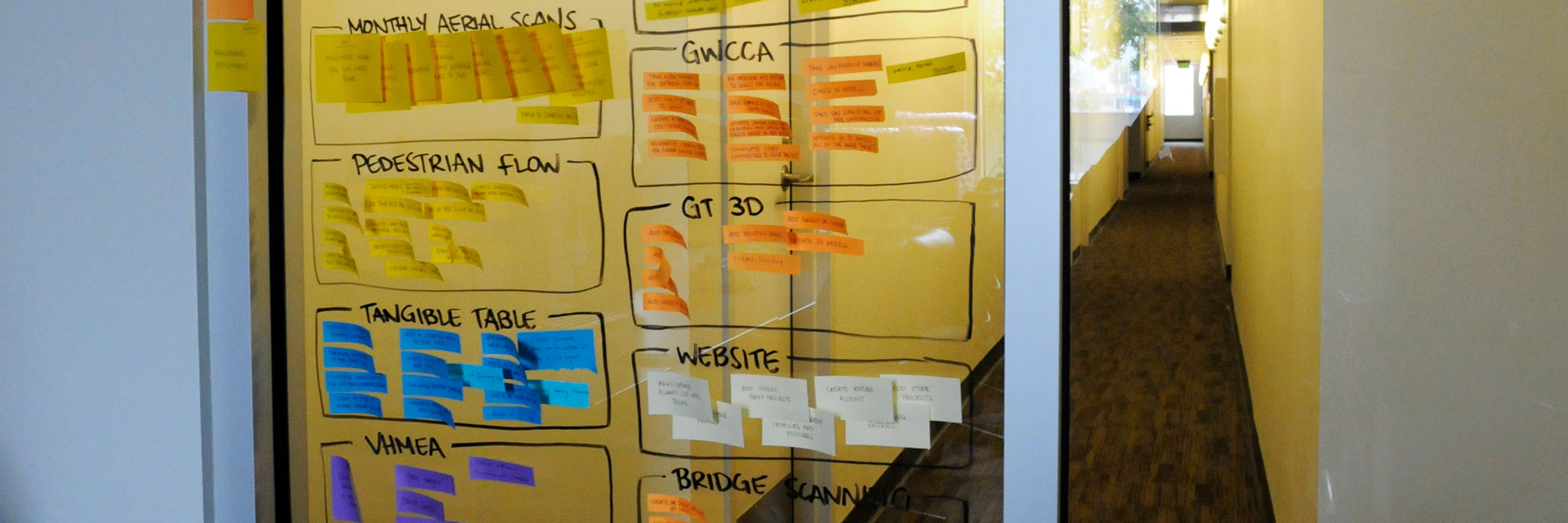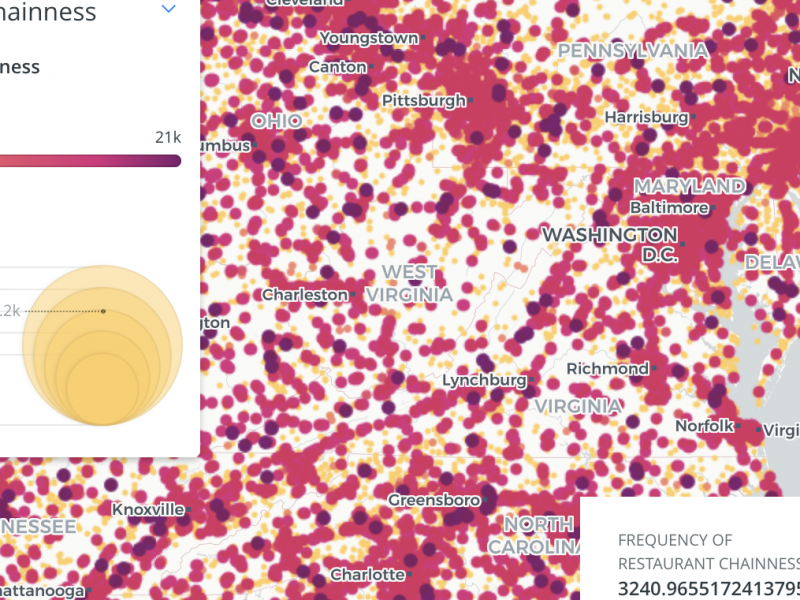
Academic Labs & Affiliated Research Centers
Academic Labs & Affiliated Research Centers
The School of City and Regional Planning is dedicated to crafting communities that are sustainable, just, resilient, healthy, and inclusive through world-class education and cutting-edge research.
Our faculty lead several labs and research centers, and provide students outstanding opportunities for in-depth research as they pursue their graduate studies.
Academic Labs
The School of City and Regional Planning has six faculty-led research labs spanning topics of economic development, population health and wellbeing, urban design, climate change, housing issues, and social networks in geographic space.
Affiliated Research Centers
The College of Design is home to six research centers. Our faculty direct two of them: the Center for Quality Growth and Regional Development (CQGRD), and the Center for Spatial Planning Analytics and Visualization (CSPAV).
Our master’s students work in these centers as GRAs, and our Ph.D. students complete a significant amount of their research working in them. Research scientists in the centers teach a handful of our classes, which allows for a strong research foundation.
The Center for Spatial Planning Analytics and Visualization is an interdisciplinary research center focused on addressing urban and regional problems by analyzing spatial data. The center’s research includes developing applications for computational data mining, spatial mapping through web services, geo-visualization, artificial intelligence based on machine and deep learning, and spatial representations with augmented and virtual reality. CSPAV serves as a leader and catalyst for the advancement of GIS technology for academic institutions, private industry, and the public sector.
The Center for Quality Growth and Regional Development is an applied research center that aims to foster quality growth and development in communities through extensive public outreach efforts. Its work is in five program areas:
- air quality & the natural environment
- community design & architecture
- healthy places
- land development & regional governance, and
- transportation & infrastructure.
Other Research Centers & Labs
Our faculty and students are collaborators in many other research centers on the Georgia Tech campus, including:
Atlanta Census Research Data Center provides the research community in Atlanta, and around the Southeast, with the opportunity to access confidential Census microdata.
Brook Byers Institute for Sustainable Systems enhances Georgia Tech’s research, education, and service missions, and campus operations through leadership, communications, development, and decision making inspired and defined by the principles of sustainability.
Centers for Disease Control and Prevention's Healthy Community Design Initiative works to improve public health by linking public health surveillance with community design decisions; improving community design decisions through tools such as Health Impact Assessments; educating decision makers on the health impact of community design; building partnerships with community design decision makers and their influencers; conducting research to identify the links between health and community design; and translating research into best practices.
Enterprise Innovation Institute seeks to help communities participate in the ongoing economic revolution through research and assessments, coaching, facilitation, and implementation assistance. Expertise includes organizational development to strategic planning and economic development program design; business recruitment, expansion, and retention, and industrial development and economic diversification; entrepreneur and workforce development and the provision of human services; public policy development to land use planning and environmental stewardship; marketing research to messaging formation; and the utilization of technologies and fostering emerging technology industries.
Office of Policy Analysis and Research focuses on science and technology policy, with a mission to stimulate dialogue between technologists and policymakers in order to shape public policy regarding science and technology through active engagement with Georgia's policymaking constituencies.
Strategic Energy Institute was established to serve as a conduit for integrating, facilitating, and enabling Institute-wide programs in energy research and development. Engaging the best and brightest from industry, government, and academia, SEI will create innovative solutions to current and future energy challenges. SEI develops technologies, policies, and educational programs that have the potential for offering high-impact solutions to pressing near-term energy issues. SEI engages in fundamental energy-related research that will have a long-term, transformative effect on our nation's energy future.
Questions?
Contact Us






